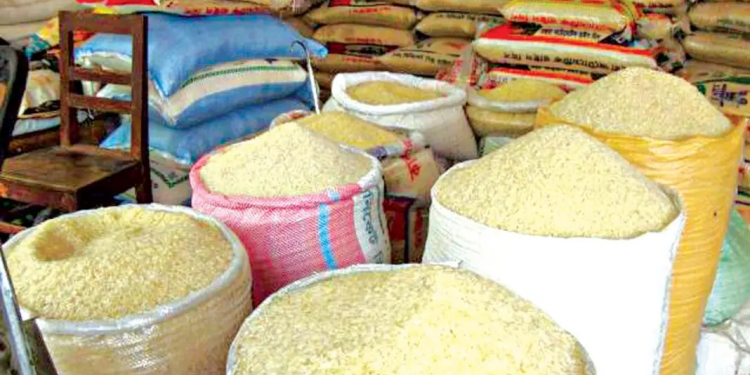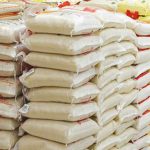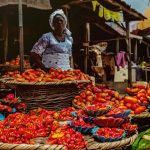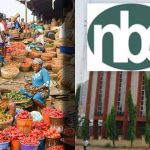The cost of local rice in Nigeria surged by 137.32% in October 2024 compared to the same period in 2023, making it one of the country’s most expensive staple foods, according to the National Bureau of Statistics (NBS).
The NBS’s Selected Food Prices report revealed that the average price of local rice in October 2024 was N1,944.64, a significant jump from N819.42 in October 2023. Month-on-month, prices also increased by 1.56% from N1,914.77 in September 2024.
The price of local rice varied significantly across Nigerian states. Kogi recorded the highest price at N2,693.41, while Benue had the lowest at N1,267.25. These disparities underscore regional challenges in supply, demand, and distribution logistics.
The surge in rice prices mirrors broader food inflation trends. The NBS report noted that food inflation in Nigeria reached 39.16% year-on-year in October 2024, up from 31.52% in October 2023. Month-on-month, food inflation rose by 2.94%, highlighting persistent economic pressures such as exchange rate volatility, rising fuel costs, and supply chain disruptions.
NBS attributed rising food inflation to increased prices of key staples, including guinea corn, maize, yam, palm oil, vegetable oil, and processed beverages like Milo and Lipton.
Agricultural Rice and Ofada Rice Price Hikes
Agricultural rice, a staple often sourced directly from farmers, saw an even higher price hike of 138.90%, reaching N2,023.68 in October 2024 from N847.08 a year earlier. Prices ranged from N3,120.49 in Nasarawa to N1,354.87 in Benue.
Ofada rice, a locally cultivated variety from southwestern Nigeria, experienced the sharpest increase, with prices soaring by 199.16% to N2,428.65 in October 2024, compared to N811.83in October 2023. Prices varied widely, from N3,400 in Osun to N1,425 in Adamawa
Imported rice prices also rose significantly, reflecting a 143.21%year-on-year increase to N2,471.28 per kilogram in October 2024 from N1,016.12 in 2023. Kogi recorded the highest price at N3,187.35, while Niger reported the lowest at N2,017.04.
The increase in imported rice prices is attributed to currency devaluation, higher import tariffs, and global factors such as the Ukraine conflict and rising energy costs. Despite growth in local rice production, Nigeria remains heavily reliant on imports to meet domestic demand.
The sharp rise in rice prices and overall food inflation has drawn calls for intervention. Senator Babangida Husaini, representing Jigawa North-West Senatorial Zone, urged federal, state, and local governments to address escalating food costs. He emphasized the urgency of implementing measures to stabilize prices, especially during the harvest season.
The rising cost of rice—local, agricultural, and imported—underscores the pressing need for policies to enhance local production, streamline supply chains, and mitigate inflationary pressures on Nigerian households.










